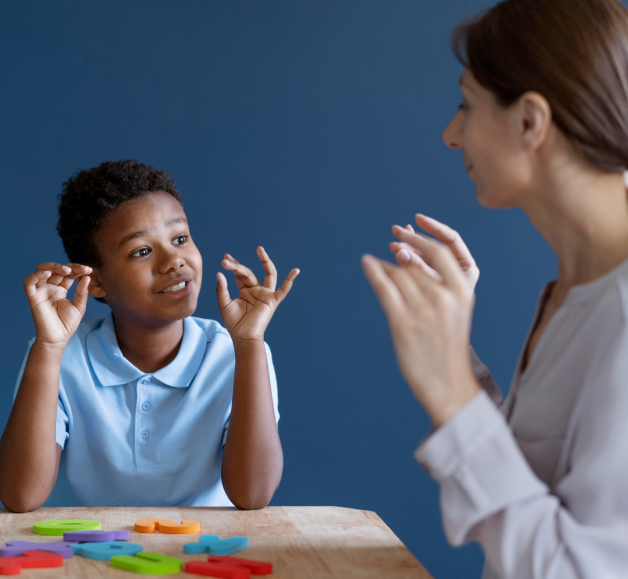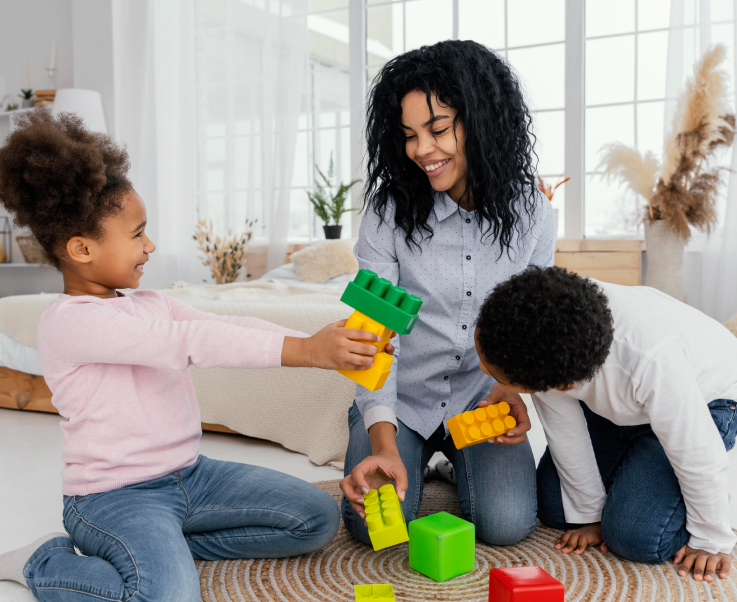At Crown Counseling, we help children and their families to manage daily challenges that otherwise prevent them from achieving personal goals within their lives. We encourage self-exploration and various evidence-based practices in therapy that are built to assist family members as they work toward reducing friction, learning effective communication skills, unloading emotional baggage, and changing other unhealthy behaviors within their daily interactions.


Our therapists frequently check in to make sure that therapy is based on every family member’s
interest to engage in issues regarding family dynamics, and will readily offer a mix of
individual, couples, family, and group counseling along with other potentially effective
interventions. Call us at (219) 663-6353 for more information or to schedule an intake
appointment.
It has been used effectively with children who have an understanding level of a normal three to eight year old, who are; distraught due to family problems (e.g., parental divorce, sibling rivalry), nail biters, bed wetters, aggressive or cruel, social underdeveloped, or victims of child abuse. It has also been used with special education students whose disability is a source of anxiety or emotional turmoil.
Practitioners of play therapy believe that this method allows the child to manipulate the world on a smaller scale, something that cannot be done in the child's everyday environment. By playing with specially selected materials, and with the guidance of a person who reacts in a designated manner, the child plays out his/her feelings, bringing these hidden emotions to the surface where s/he can face them and cope with them. In it's most psychotherapeutic form, the teacher is unconditionally accepting of anything the child might say or do. The teacher never expresses shock, argues, teases, moralizes, or tells the child that his/her perceptions are incorrect. An atmosphere should be developed in which the child knows that s/he can express herself/himself in a non punitive environment. Yet, even though the atmosphere is permissive, certain limits may have to be imposed such as restrictions on destroying materials, attacking the teacher, or going beyond a set time limit.
